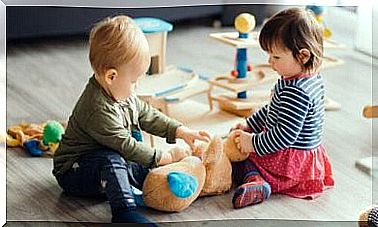The Emotional Consequences Of Family Separation

There are families who, for one reason or another, experience separation. With that in mind, some of you who read this article have experienced what it is like to be separated from those you love. This situation is not easy for anyone. Especially if the circumstances are completely beyond the control of the family. This is why we believe it is important to take a look at the emotional consequences of family separation.
When family separation occurs as a result of coercion, then the situation becomes even more unbearable and unbearable. Therefore, in the following paragraphs, we will try to explain the emotional consequences of family separation.
Furthermore, we will provide you with some guidelines on how to get through this time as well as possible. If you manage to take control of your emotions, then you will be able to achieve well-being, despite the disturbing circumstances.
Family Separation: Living Away From Those You Love
There are times when families have no choice but to go their separate ways for a while. This may be due to problems at work, for example. Or, it may be the result of more extreme circumstances forcing families to separate, against their will.
No matter what the cause behind a family separation, it leads to consequences on many levels. Today, we want to have a special focus on the emotional consequences of family separation. We will also look at how to deal with these emotional states. In other words, how to achieve healthy, emotional regulation.

The emotional consequences of family separation
For those who live far away from their family and are unable to touch, kiss or embrace those they love, it can be unbearable and lead to extreme feelings of loneliness. This means accepting a different rhythm in life. And it requires individuals to take advantage of the opportunities to be in touch with the rest of their family in ways that are different from what they are used to.
So are you away from your family, at this point, for an extended period of time? You can plan to spend time with them online on a regular basis and create a daily routine. Modern technology allows us to be connected in real time through video calling, for example. It makes family separation much easier to carry, and it reduces feelings of isolation and loneliness.
In addition to these feelings of loneliness, sadness can also work its way into our daily lives. And this can, over time, lead to depression. The stress that these circumstances can cause in our lives, whether we like it or not, can be completely destabilizing.
Suffering from elevated levels of stress can quickly lead to post-traumatic stress disorder. All of this can occur in the most extreme cases. Furthermore, having to live far away from family can cause individuals to experience feelings of anger and rage. So what can be done to keep all this from happening?

Family Separation: Guidelines for Achieving Emotional Regulation
One way to achieve healthy, emotional regulation is to practice mindfulness. Programs such as MBSR (mindfulness-based stress reduction), teach us, among other things, emotional regulation based on meditation. The first to introduce this program was Jon Kabat Zinn. However, today there are more and more interventions based on introspection that include sessions dedicated to emotional regulation.
Mindfulness-based programs seek to establish emotional control through the body. So when an emotion presents itself in the body, one can identify it and then regulate it. In this way, we prevent an inner dialogue from developing according to the feeling.
In other words, if you can regulate your emotions by directing your attention to the body, you can eliminate unnecessary emotions that automatically create negative thoughts about the initial emotion.









